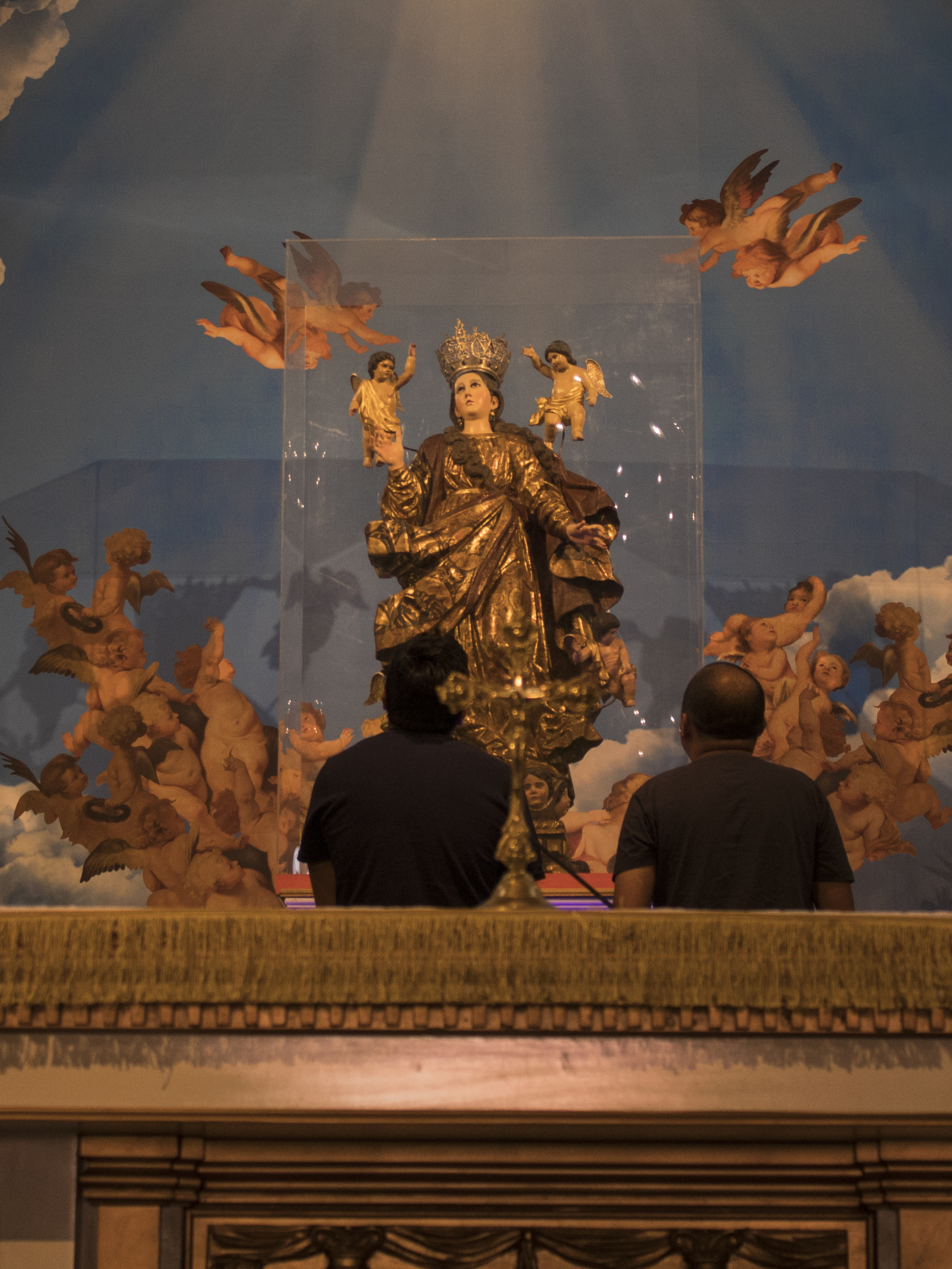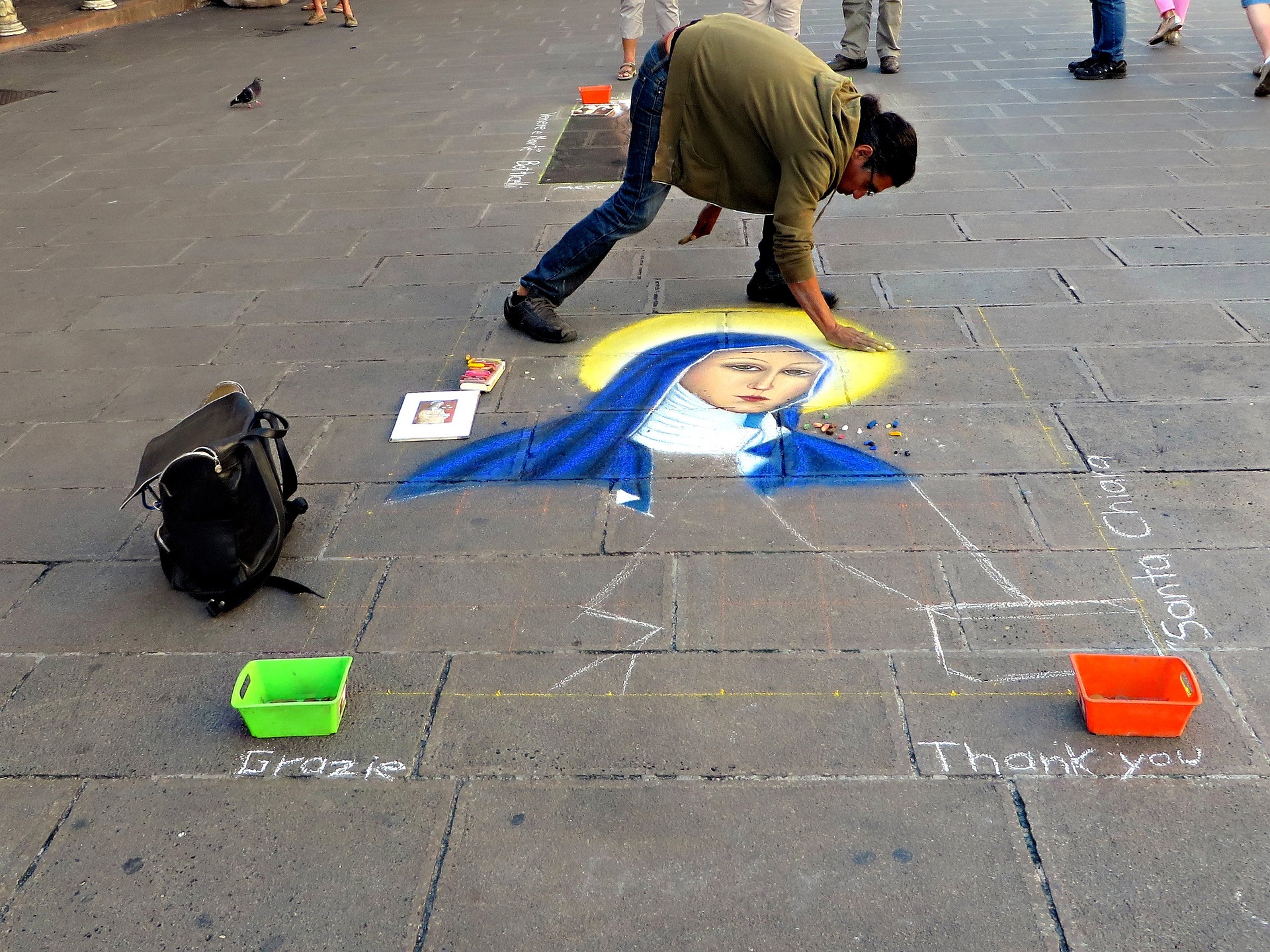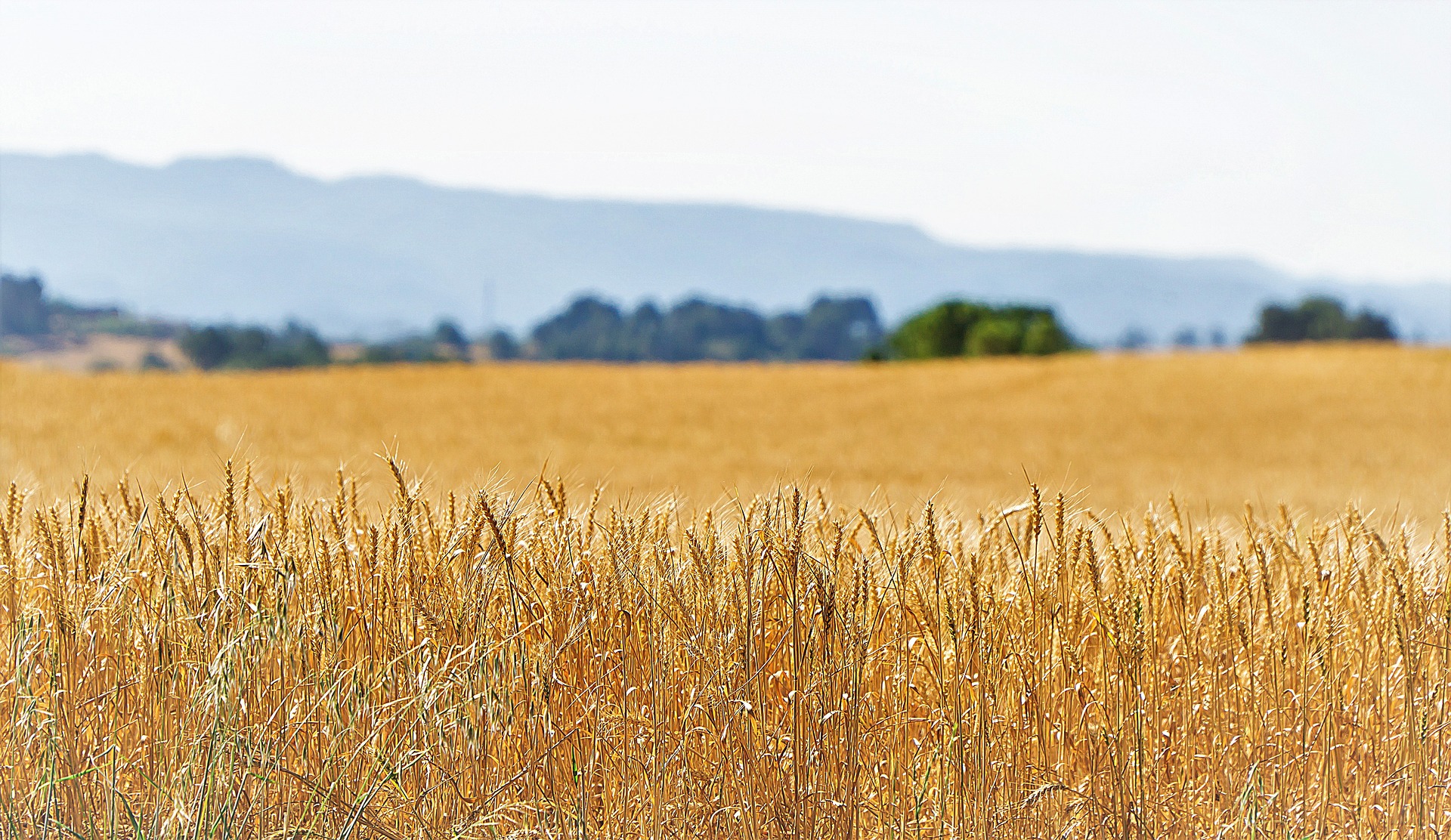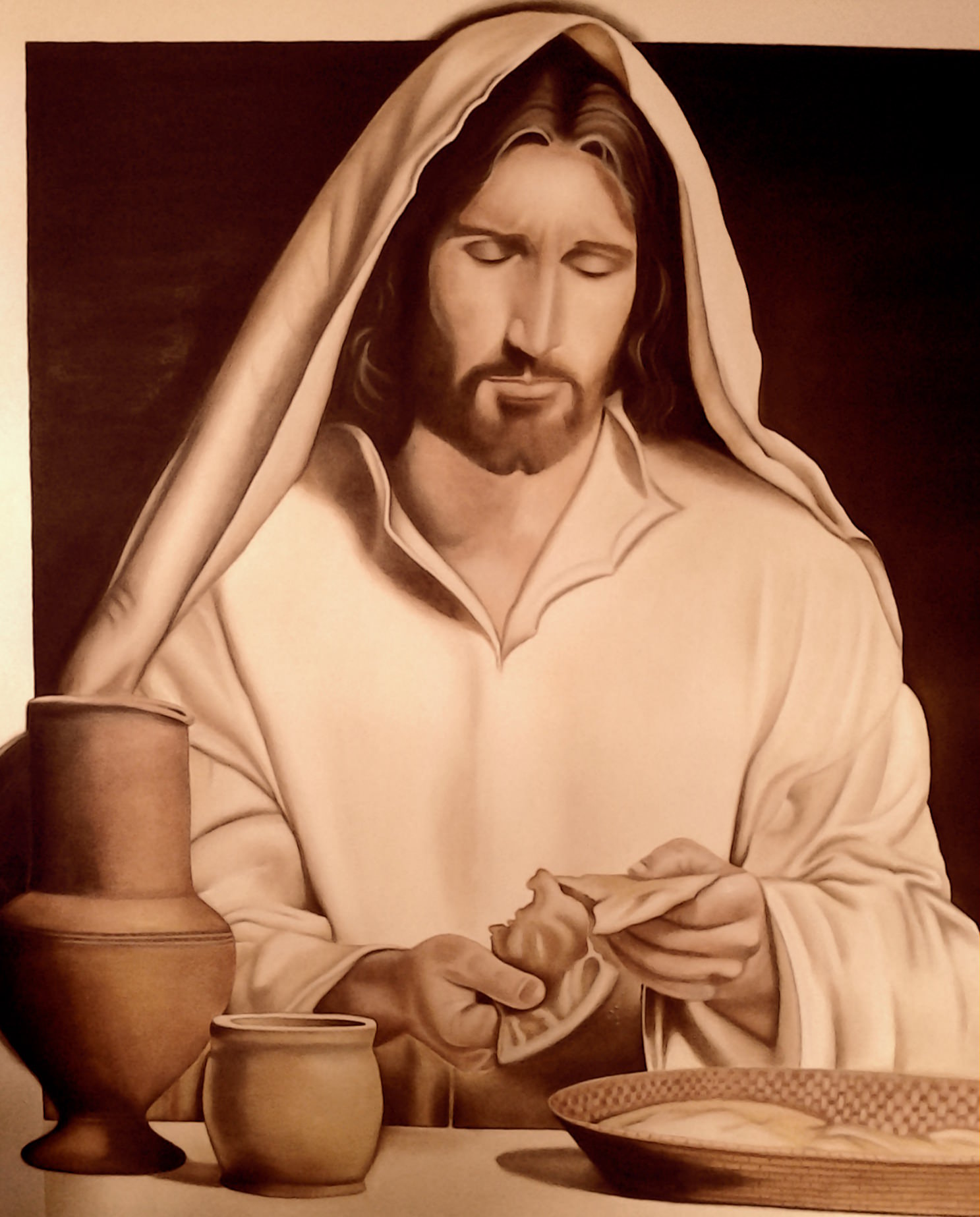Have you ever been incredibly thirsty? I don’t just mean slightly parched, but being so thirsty you felt like if you don’t get water in a second you will cease to exist. I remember a backpacking trip I took with my cousins where I experienced real thirst. I do not like being out in the sun for too long because I can burn within a couple minutes. During this trip I was on the beach and stayed out too long and had sunburn across my entire body. The only difference between me and a lobster was that I didn’t have claws. I felt like all the moisture from my body had evaporated and I needed a neverending hose of water just to quench my dying thirst.
Have you ever had a moment in your life where you were truly thirsty? On this earth we seek material things that will help quench the thirst of the body, but we all thirst spiritually as well, and God wants to enter into our thirst and quench it. It is only in allowing God to quench or own thirst, hurt, and misery, that we can see that call to do the same to others. After all, if God can forgive a miserable sinner like me, he certainly can for you as well, and even help you to forgive others who have wronged you.
Forgiveness is something supernatural. It takes the power of God not only for our personal forgiveness, but when we forgive others we participate in this grace of God and are allowed into the misery of others to help them find peace. I think there is a reason that the first reading from today speaks of the incredible power of God in The Old Testament. He is a God who can cause the very sea to do what he says, so of course he could forgive and allow us to participate in his forgiveness. That is just the sort of thing an all powerful God would do.
This brings a whole new meaning to the words of Christ on the cross when he cries out, “I thirst”. He is not thirsting so much for material things, but he is thirsting for you and me. It is not an easy thing to forgive or accept forgiveness, but the forgiveness and mercy that Christ gives has no limits. I want to leave you with one of my favorite quotes from St. Claude de la Colombiere:
“I glorify You in making known how good You are towards sinners, and that Your mercy prevails over all malice, that nothing can destroy it, that no matter how many times or how shamefully we fall, or how criminally, a sinner need not be driven to despair of Your pardon…It is in vain that Your enemy and mine sets new traps for me every day. He will make me lose everything else before the hope that I have in Your mercy.”
¿Alguna vez has tenido una sed increíble? No me refiero a un poco de sed, sino que al tener tanta sed que sentías que si no conseguías agua en un segundo dejarías de existir. Recuerdo un viaje de mochilero que hice con mis primos cuando experimenté mucha sed. No me gusta estar al sol por mucho tiempo porque puedo quemarme en un par de minutos. Durante este viaje estuve en la playa demasiado tiempo y tuve quemaduras solares por todo el cuerpo. La única diferencia entre una langosta y yo era que yo no tenía garras. Sentí que toda la humedad de mi cuerpo se había evaporado y necesitaba una manguera interminable de agua para saciar mi sed inaguantable.
¿Alguna vez has tenido un momento en tu vida en el que realmente tenías sed? En esta tierra buscamos cosas materiales que ayuden a saciar la sed del cuerpo, pero todos tenemos sed espiritual también, y Dios quiere entrar en nuestra sed y saciarla. Es sólo cuando permitimos que Dios sacie o se haga cargo de la sed, el dolor y la miseria, que podemos ver ese llamado a hacer lo mismo con los demás. Después de todo, si Dios puede perdonar a un miserable pecador como yo, ciertamente también puede hacerlo contigo, e incluso ayudarte a perdonar a otros que te han hecho daño.
El perdón es algo sobrenatural. Se necesita el poder de Dios no solo para nuestro perdón personal, sino que cuando perdonamos a otros participamos de esta gracia de Dios y se nos permite entrar en la miseria de otros para ayudarlos a encontrar la paz. Creo que hay una razón por la que la primera lectura de hoy habla del increíble poder de Dios en el Antiguo Testamento. Es un Dios que puede hacer que el mismo mar haga lo que dice, por lo que, por supuesto, podría perdonar y permitirnos participar de su perdón. Ese es exactamente el tipo de cosas que haría un Dios todopoderoso.
Esto trae un significado completamente nuevo a las palabras de Cristo en la cruz cuando grita: “Tengo sed”. No tiene tanta sed de cosas materiales, sino tiene sed de ti y de mí. No es cosa fácil perdonar o aceptar el perdón, pero el perdón y la misericordia que da Cristo no tiene límites. Quiero dejarlos con una de mis citas favoritas de St. Claude de la Colombiere:
“Te glorifico en dar a conocer cuán bueno eres con los pecadores, y que tu misericordia prevalece sobre toda malicia, que nada la puede destruir, que no importa cuántas veces o cuán vergonzosamente caigamos, o cuán criminalmente, un pecador no necesita ser desesperado de tu perdón… En vano tu enemigo y el mío me tiende cada día nuevas trampas. Me hará perder todo lo demás ante la esperanza que tengo en Tu misericordia.”

Tommy Shultz is a Business Development Representative for Diocesan. In this role he is committed to bringing the best software to dioceses and parishes while helping them evangelize on the digital continent. Tommy has worked in various diocese and parish roles since his graduation from Franciscan University with a Theology degree. He hopes to use his skills in evangelization, marketing, and communications, to serve the Church and bring the Good News to all. His favorite quote comes from St. John Paul II, who said, “A person is an entity of a sort to which the only proper and adequate way to relate is love.”
Feature Image Credit: Jonathan Greenaway, unsplash.com/photos/EY-IAQ9VrBI


 Susan Ciancio has a BA in psychology and a BA in sociology from the University of Notre Dame, with an MA in liberal studies from Indiana University. For the past 19 years, she has worked as a professional editor and writer, editing both fiction and nonfiction books, magazine articles, blogs, educational lessons, professional materials and website content. Thirteen of those years have been in the pro-life sector. Currently Susan freelances and writes weekly for HLI, edits for American Life League, and is the executive editor of Celebrate Life Magazine. She also serves as executive editor for the Culture of Life Studies Program—an educational nonprofit program for K-12 students. You can reach her at
Susan Ciancio has a BA in psychology and a BA in sociology from the University of Notre Dame, with an MA in liberal studies from Indiana University. For the past 19 years, she has worked as a professional editor and writer, editing both fiction and nonfiction books, magazine articles, blogs, educational lessons, professional materials and website content. Thirteen of those years have been in the pro-life sector. Currently Susan freelances and writes weekly for HLI, edits for American Life League, and is the executive editor of Celebrate Life Magazine. She also serves as executive editor for the Culture of Life Studies Program—an educational nonprofit program for K-12 students. You can reach her at 
 Kathryn Mulderink, MA, is married to Robert, Station Manager for Holy Family Radio. Together they have seven children (including Father Rob), and seven grandchildren. She is President of the local community of Secular Discalced Carmelites and has published five books and many articles. Over the last 30 years, she has worked as a teacher, headmistress, catechist, Pastoral Associate, and DRE, and as a writer and voice talent for Catholic Radio. Currently, she serves the Church by writing and speaking, and by collaborating with various parishes and to lead others to encounter Christ and engage their faith. Her website is
Kathryn Mulderink, MA, is married to Robert, Station Manager for Holy Family Radio. Together they have seven children (including Father Rob), and seven grandchildren. She is President of the local community of Secular Discalced Carmelites and has published five books and many articles. Over the last 30 years, she has worked as a teacher, headmistress, catechist, Pastoral Associate, and DRE, and as a writer and voice talent for Catholic Radio. Currently, she serves the Church by writing and speaking, and by collaborating with various parishes and to lead others to encounter Christ and engage their faith. Her website is 
 Tami Urcia grew up in Western Michigan, a middle child in a large Catholic family. She spent early young adulthood as a missionary in Mexico, studying theology and philosophy, then worked and traveled extensively before finishing her Bachelor’s Degree in Western Kentucky. She loves tackling projects, finding fun ways to keep her little ones occupied, quiet conversation with the hubby and finding unique ways to love. She works full time, is a guest blogger on
Tami Urcia grew up in Western Michigan, a middle child in a large Catholic family. She spent early young adulthood as a missionary in Mexico, studying theology and philosophy, then worked and traveled extensively before finishing her Bachelor’s Degree in Western Kentucky. She loves tackling projects, finding fun ways to keep her little ones occupied, quiet conversation with the hubby and finding unique ways to love. She works full time, is a guest blogger on 
 Dr. Alexis Dallara-Marsh is a board-certified neurologist who practices in Bergen County, NJ. She is a wife to her best friend, Akeem, and a mother of two little ones on Earth and two others in heaven above.
Dr. Alexis Dallara-Marsh is a board-certified neurologist who practices in Bergen County, NJ. She is a wife to her best friend, Akeem, and a mother of two little ones on Earth and two others in heaven above.
 Kate Taliaferro is an Air Force wife and mother. She is blessed to be able to homeschool, bake bread and fold endless piles of laundry. When not planning a school day, writing a blog post or cooking pasta, Kate can be found curled up with a book or working with some kind of fiber craft. Kate blogs at
Kate Taliaferro is an Air Force wife and mother. She is blessed to be able to homeschool, bake bread and fold endless piles of laundry. When not planning a school day, writing a blog post or cooking pasta, Kate can be found curled up with a book or working with some kind of fiber craft. Kate blogs at 




 David Dashiell is a freelance author and editor in Nashville, Tennessee. He has a master’s degree in theology from Franciscan University, and is the editor of the anthology
David Dashiell is a freelance author and editor in Nashville, Tennessee. He has a master’s degree in theology from Franciscan University, and is the editor of the anthology 
 Merridith Frediani loves words and is delighted by good sentences. She also loves Lake Michigan, dahlias, the first sip of hot coffee in the morning, millennials, and playing Sheepshead with her husband and three kids. She writes for Catholic Mom, Diocesan.com, and her local Catholic Herald. Her first book Draw Close to Jesus: A Woman’s Guide to Adoration is available at Our Sunday Visitor and Amazon. You can learn more at
Merridith Frediani loves words and is delighted by good sentences. She also loves Lake Michigan, dahlias, the first sip of hot coffee in the morning, millennials, and playing Sheepshead with her husband and three kids. She writes for Catholic Mom, Diocesan.com, and her local Catholic Herald. Her first book Draw Close to Jesus: A Woman’s Guide to Adoration is available at Our Sunday Visitor and Amazon. You can learn more at 

